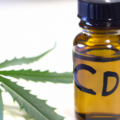Introduction
Cannabidiol, commonly known as CBD, has become a popular natural remedy for various ailments, including anxiety, depression, and insomnia.
As the stigma surrounding mental health continues to decrease, more people are turning to CBD as a potential solution.
However, there is still confusion and controversy surrounding the effectiveness and safety of CBD for mental health. In this article, we will explore the current research and provide information on CBD for mental health.
Main Section(s)
Section 1: Understanding CBD and Mental Health
CBD is a non-psychoactive compound found in the cannabis plant, which means it doesn’t produce the "high" associated with marijuana use.
Instead, it interacts with the body’s endocannabinoid system, a complex cell-signaling system that regulates various processes such as mood, appetite, and sleep.
A growing body of research suggests that CBD may have potential therapeutic effects on mental health.
For instance, a study published in Frontiers in Immunology found that CBD can reduce anxiety and depression-like behaviors in animals.
Another study published in the Journal of Clinical Psychology found that CBD may help reduce symptoms of post-traumatic stress disorder (PTSD) in adults.
However, more research is needed to fully understand the effects of CBD on mental health.
It’s important to note that CBD should not replace traditional treatments for mental health conditions.
If you’re considering using CBD for mental health, it’s essential to consult a medical professional to determine if it is right for you.
Section 2: Using CBD for Anxiety and Depression
Anxiety and depression are two of the most common mental health conditions, affecting millions of people worldwide.
Prescription medications like selective serotonin reuptake inhibitors (SSRIs) and benzodiazepines are commonly used to treat these conditions.
However, these drugs can have side effects and may not work for everyone.
CBD has shown promise in reducing symptoms of anxiety and depression. According to a study published in Neuropsychopharmacology, CBD can reduce anxiety in people with social anxiety disorder.
Another study published in the Journal of Psychopharmacology found that CBD can improve symptoms of depression in animals.
Table 1: Studies on CBD and Anxiety/Depression
| Study | Participants | Results |
|---|---|---|
| Neuropsychopharmacology | 24 people with social anxiety disorder | CBD reduced anxiety |
| Journal of Psychopharmacology | Animals | CBD improved symptoms of depression |
While these studies are promising, more research is needed to determine the long-term effects of using CBD for anxiety and depression.
Section 3: Using CBD for Sleep
Sleep is essential for overall health, and poor sleep quality can lead to various mental health conditions.
Prescription sleep aids like benzodiazepines and non-benzodiazepine sedatives are commonly used to treat sleep disorders.
However, these drugs can be addictive and may cause side effects like daytime drowsiness.
CBD has shown potential in improving sleep quality. A study published in the Journal of Clinical Psychopharmacology found that CBD can improve sleep in people with insomnia.
Another study published in the Permanente Journal found that CBD can reduce anxiety and improve sleep quality in people with PTSD.
Table 2: Studies on CBD and Sleep
| Study | Participants | Results |
|---|---|---|
| Journal of Clinical Psychopharmacology | 25 people with insomnia | CBD improved sleep |
| Permanente Journal | 72 people with PTSD | CBD reduced anxiety and improved sleep quality |
Conclusion
While the research on CBD for mental health is still in its early stages, there is growing evidence to suggest that it may have potential therapeutic effects on anxiety, depression, and sleep disorders.
However, it’s essential to consult a medical professional before using CBD for mental health and to ensure that it does not interfere with any other medications you may be taking.
FAQ
Q: Is CBD legal?
A: CBD is legal in many countries, including the United States and Canada.
However, the legality of CBD depends on the source of the compound.
CBD derived from hemp plants containing less than 0.3% THC is legal, while CBD derived from marijuana plants is still illegal at the federal level.
Q: What are the side effects of CBD?
A: CBD is generally well-tolerated, and side effects are rare.
However, some people may experience dry mouth, diarrhea, fatigue, and changes in appetite and weight.
Q: Can CBD be addictive?
A: CBD is not addictive and does not produce a "high" like THC, the psychoactive compound in marijuana.
Q: Can CBD interact with medications?
A: CBD can interact with certain medications, including blood thinners and seizure medications.
It’s important to consult a medical professional before using CBD if you’re taking any medications.
Q: How should I take CBD for mental health?
A: The dosage and method of taking CBD for mental health will depend on your individual needs and the advice of a medical professional.
CBD can be taken in various forms, including oils, capsules, gummies, and topicals.
Q: Can CBD cure mental health conditions?
A: CBD cannot cure mental health conditions, and it should not replace traditional treatments.
However, it may help reduce symptoms and improve overall quality of life.
I am a CBD enthusiast and creator of DJ Hemp who has made it my mission to enlighten the world about the cannabis industry through thought-provoking literary works.
I have successfully fostered an open-minded, inquisitive community that is eager to learn more about the potential benefits of CBD.
Contact me at [email protected] for assistance.





